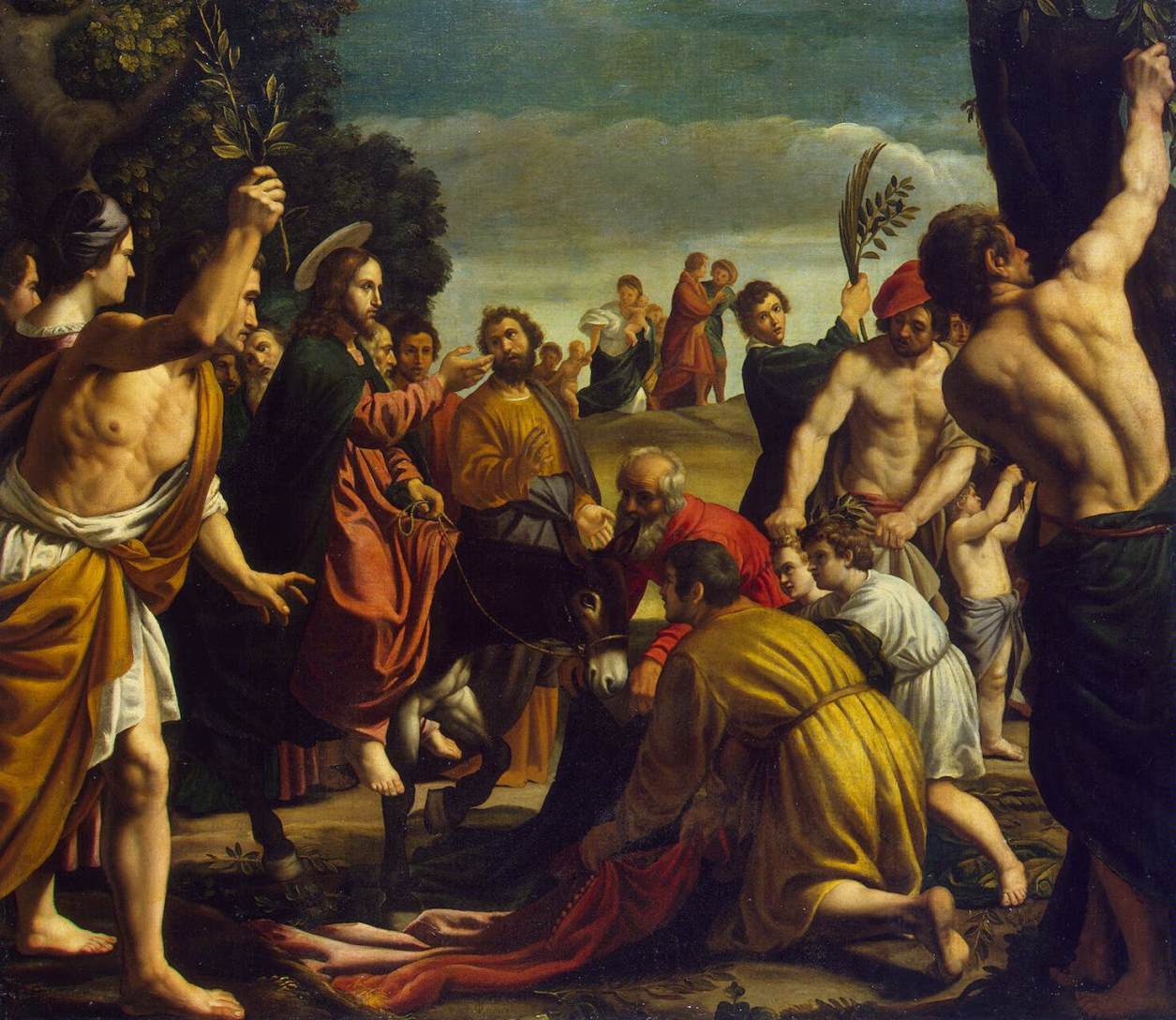
[Answering Atheism Tuesday]
One of the (many) fatal errors of our modern marxist/atheistic/humanist/materialist/etc world is the neatly packaged lie that man (and by extension, society) is innately good. Or at a minimum – we are morally neutral – but the natural evolutionary pressure to advance our species makes us disposed to build community in a positive way. Or something like that.
Christianity (and a common-sense view of history and the world around us) dictates otherwise.
All we need to know about the real nature of man and society, when left to its own devices, is on display during Christ’s time in Jerusalem leading up to his passion.
To put it in modern context, we might think of Jerusalem in the time of the Gospel as, say, the Big Apple – filled with the learned, the sophisticated, the illuminati. As has been said, “I don’t know where the world is going, but New York is already there.”
A small sample of fallen humanity that is on display after Christ’s triumphal entry to Jerusalem:
- Unbridled materialism, leading to Jesus’ cleansing of the temple.
- Tyranny of the ruling class, as Jesus accuses, “you tie up heavy burdens and lay them on other people’s shoulders.” (Mt 23:4)
- Authoritarian contempt, with the Jewish leaders challenging Jesus, “by what authority to you do these things?” (translation – how dare you challenge our authority)
- When the elites can’t trap and disgrace Jesus, the conspire outright to kill Him.
- The indifference of the masses. The mob in Jerusalem is easily swayed to cry out “Crucify Him!” with seemingly little more justification than the ginned-up fear that Jesus would disrupt the sufficiently comfortable compromise they had worked out with the Romans.
Thus is the nature of man left to his own devices. This is why communist revolutions rely on authoritarian tyranny to hold things together. The promise of utopia is always “one great leap” away – just put up with our boot on your neck a little longer.
What has this to do with our interior life? Just a reminder that the fallen world will always be at odds with Christ and authentic Christian values. As Jesus tells His own during the Last Supper, “because you do not belong to the world, and I have chosen you out of the world, the world hates you.” Of this, St. John Chrysostom says, “He bids them not to grieve, but to rejoice on that account,” because the hatred of the world reveals their love of Christ.
The Gospel exposes fallen humanity for what it is – hopeless without a Savior. And, thanks be to God, the Gospel reveals the Savior as well.
Holy Week blessings to you –
Steve and Karen Smith
Interior Life
Postscript: Jesus, I trust in You.
We often emphasize the power of the simple prayer given by our Lord to St. Faustina – “Jesus, I trust in You.”
Those five words are something of a gateway for turning our will over to God. The “trust” of that prayer is meant to be a radical submission of our will to God’s – exactly as Christ demonstrates during His agony in the garden.
When trials come, when we find ourselves with Jesus on the Mount of Olives, we might start with “Jesus, I trust in You,” and pass through that gateway:
“Jesus, I trust in You … more than I trust in myself. I trust Your will over my own. I trust Your plan for my happiness over my own desires. I trust Your plan for my loved ones over my own designs. I trust You are working all these sufferings to the greatest possible good. I trust You are always by my side. I trust You will give me all the graces necessary to come through this. I trust You will bring me to a time when I look back on this trial and see only how much You loved me through it…”
